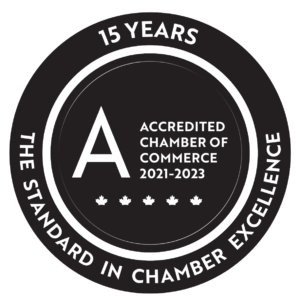On December 13, 2017, federal Finance Minister Bill Morneau released details on changes to business taxation following consultations and considerable feedback from organizations like the Canadian Chamber of Commerce and the Mississauga Board of Trade.
Specifically, these tax changes (which are proposed to be effective for the 2018 and subsequent taxation years) will clarify the process for determining whether a family member is significantly involved in a business, and thus is excluded from potentially being taxed at the highest marginal tax rate (known as the tax on split income or TOSI).
The changes include clear, “bright-line” tests – or off ramps – to automatically exclude individual members of a business owner’s family who fall into any of the following categories:
The business owner’s spouse, provided that the owner meaningfully contributed to the business and is aged 65 or over. In recognition of the special challenges associated with planning for retirement and managing retirement income, the new approach to income sprinkling will be better aligned with the existing pension income splitting rules. This also reflects the fact that a business can play an important part in supporting its owner in retirement.
Adults aged 18 or over who have made a substantial labour contribution (generally an average of at least 20 hours per week) to the business during the year, or during any five previous years. For businesses with seasonal operations, such as may be the case with farms and fisheries, the labour contribution requirement will be applied for the part of the year in which the business operates.
Adults aged 25 or over who own 10 per cent or more of a corporation that earns less than 90 per cent of its income from the provision of services and is not a professional corporation.
Individuals who receive capital gains from qualified small business corporation shares and qualified farm or fishing property, if they would not be subject to the highest marginal tax rate on the gains under existing rules.
Individuals aged 25 or over who do not meet any of the exclusions described above would be subject to a reasonableness test to determine how much income, if any, would be subject to the highest marginal tax rate. In certain cases, adults aged 18 to 24 who have contributed to a family business with their own capital will be able to use the reasonableness test on the related income.
For additional clarity, the Canada Revenue Agency (CRA) has released guidance with respect to these measures. The CRA’s guidance will seek to help businesses and family members understand the operation of the measures and, in doing so, effectively reduce their compliance burden in relation to these new rules. Taxpayers with questions regarding its guidance can contact the CRA.
The Government believes that the vast majority of private corporations will not be impacted by these proposals. In fact, the simplified measures have further reduced the number of businesses potentially affected from 50,000 corporations – about 3 per cent of Canadian-controlled private corporations – to fewer than 45,000. More significantly, the proposals provide greater certainty that the revised rules will not apply to individuals who make a meaningful contribution to a business.
Owners of private corporations will have until the end of 2018 to adjust to the new exclusion for non-service businesses.
The revised income sprinkling measures are proposed to be effective for the 2018 and subsequent taxation years. The measures will be legislated as part of the Budget process.
The Government will also move forward with measures to limit tax deferral opportunities related to passive investments, and details of that plan will be included in Budget 2018. When introduced, the passive investment measures will apply only on a go-forward basis.
In addition to these changes to the income sprinkling measures, the Government is taking a range of actions including:
Lowering the federal small business tax rate from 11 per cent in 2015 (to 10 per cent effective January 1, 2018, and to nine per cent effective January 1, 2019), knowing that a continued tax advantage for Canadian businesses – including the lowest small business tax rate in the G7 – will help to create more jobs and grow the economy.
Moving forward with measures to limit the tax deferral opportunities related to passive investments, while providing business owners with more flexibility to build a cushion of savings for business purposes – for example, to deal with a possible downturn or finance a future expansion – as well as to deal with personal circumstances, such as parental leave, sick days or retirement.
During the consultation period, the Government heard from business owners, including many farmers and fishers, about the challenges with intergenerational transfers of businesses. The Government will work with family businesses, including farming and fishing businesses, to make it more efficient, or less difficult, to hand down their businesses to the next generation.
The Canadian Chamber of Commerce and the Mississauga Board of Trade remain concerned about these changes and their effect on the business climate in Canada.
Senate Committee of National Finance
Meanwhile, the Senate Committee on National Finance concluded cross-country consultations on Canada’s tax regime. The news release and link to the full report are featured below.
The federal government should scrap or at least delay plans to amend the Income Tax Act as the proposals risk harming the Canadians these changes are meant to help, the Senate Committee on National Finance said in a report released Wednesday.
The committee’s report is the product of extensive study and cross-Canada consultations with the people who have the most to lose under the proposed changes. This work took place with the endorsement of the federal finance minister.
The majority of senators on the committee believe cancellation is the most prudent course of action. However, committee Deputy Chair Senator André Pratte and Senator Éric Forest disagreed.
As an alternative to cancellation, delaying fiscal reform implementation would also give the government more time to consult with businesses and tax specialists on the details of the changes, once these have been released.
Witnesses described in concrete terms the extent to which some changes would be harmful to them. Proposed restrictions on passive investments, for instance, would discourage business owners from saving for capital investments, economic downturns or even parental leave and retirement.
There is another reason for the government to withdraw or delay its proposals.
Over the past decades, various governments have made incremental changes to the tax system, which has become bloated, complex and cumbersome. The last comprehensive review of the tax system took place in the 1960s; the committee believes it is long past time for the government to take a close look at our existing system.
If the government truly wishes to make meaningful, lasting changes toward a fairer tax system — and maintain Canada’s competitiveness with other countries that have simplified their own tax codes — the committee believes the government must embark on a full review of the tax system.
It would be an ambitious, time-consuming and difficult project. But, done well and with input from Canadians, it would leave a lasting legacy of stability and profitability.
The committee urges the government to embrace this challenge.
To read the full report, go to https://sencanada.ca/content/sen/committee/421/NFFN/Reports/NFFN_Tax_Planning_24th_Report_e.pdf




